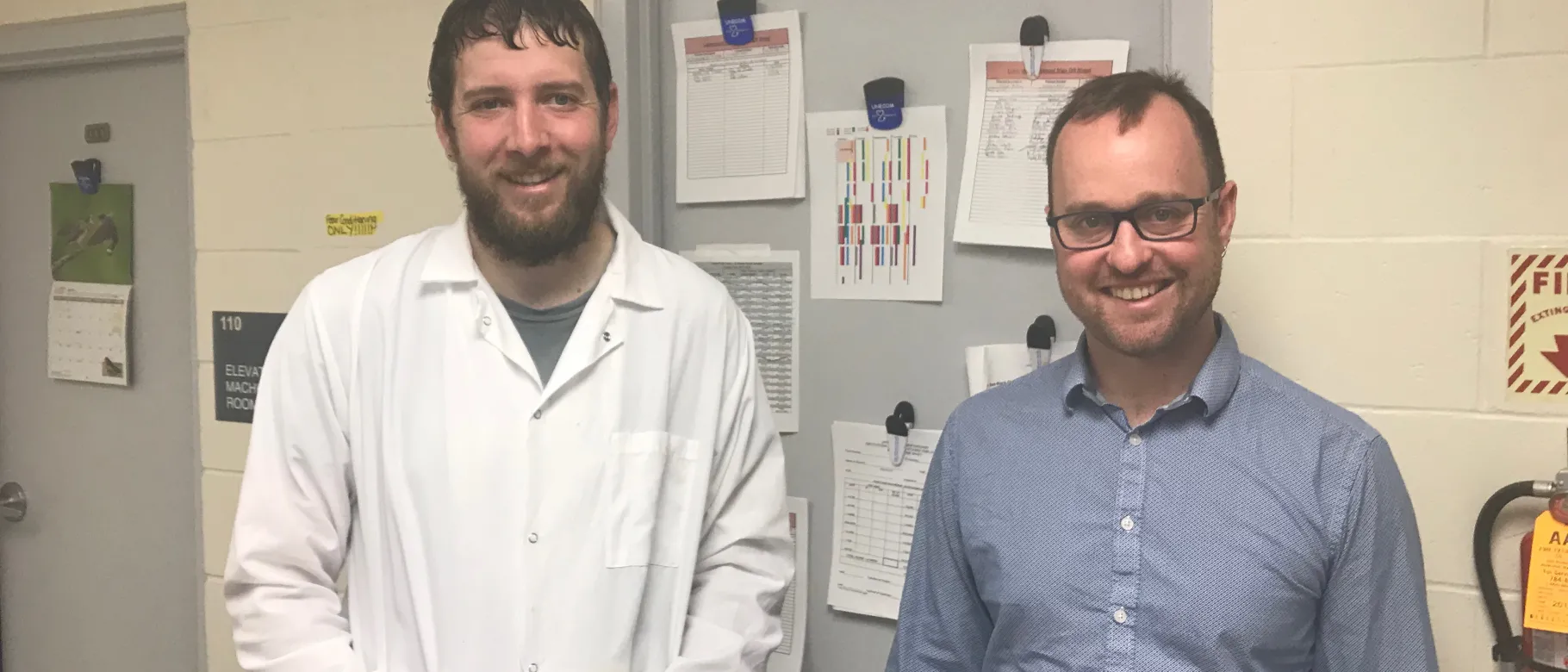UNE research on neonatal pain published in leading journal

Research conducted by the Burman Collaborative at the University of New England links neonatal pain to changes in fear, anxiety and depression later in life.
“Although anxiety is the most prevalent psychological disorder, most people don’t have anxiety. We want to understand what factors may lead one towards resilience or mental health issues later in life,” said Associate Professor of Psychology Michael Burman, Ph.D.
The new research on long-term effects of neonatal trauma is published in Developmental Psychobiology, a leading journal for developmental specialists.
Seth Davis, Ph.D., research associate/lab manager, led the effort with assistance from students Makaela Rice (Neuroscience, '19), Jacob Rudlong (Neuroscience, '18), Victoria Eaton (Neuroscience, '18), and in collaboration with Tamara King, Ph.D., associate professor of biomedical sciences.
This project is part of a larger effort by Burman’s research group to understand how neonatal pain and trauma affects brain development and mental health later in life.
Burman says premature or sick babies often experience pain and stress in neonatal units during the early stages of their lives.
"It’s an incredibly stressful place. There are bright lights, loud sounds, and being handled by strangers who are not your mother. In addition, many painful events happen there each day,” he said.
The research entailed using rats to mimic the hospital procedure in which neonatal infants receive heel lancing to draw blood. The rats were given four skin-breaking paw pricks a day, for the first week of their lives. It led to enhancement in pain sensitivity and alterations in fear responses that will exist over the span of their lifetime, according to the research.
Burman says the results provide early evidence that trauma induced in a medical context may be one reason why premature infants are more likely to suffer from depression, anxiety and pain later in life.
He hopes the findings can lead to changes in neonatal units.
“We believed that the physicians and nurses in the neonatal intensive care unit would be highly motivated to change their protocols, if we could show there is a problem,” he said.
Burman says it’s especially satisfying conducting this kind of research with students.
“Most of our work is done by undergraduates. A big part of that is our love of mentoring and our desire to spark their careers and launch them into becoming successful scientists. That’s why I’m here at UNE. It’s something that UNE does really well,” he said.
View the research and findings
To learn more about the University of New England’s College of Arts and Sciences, visit www.une.edu/cas
To apply, visit www.une.edu/admissions